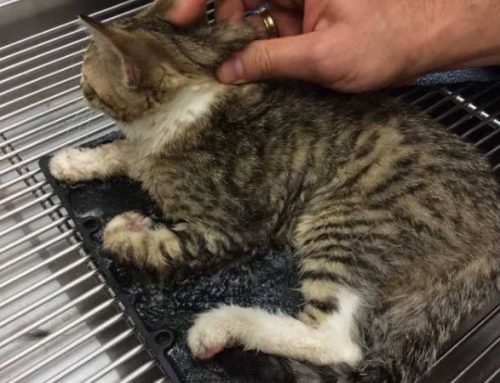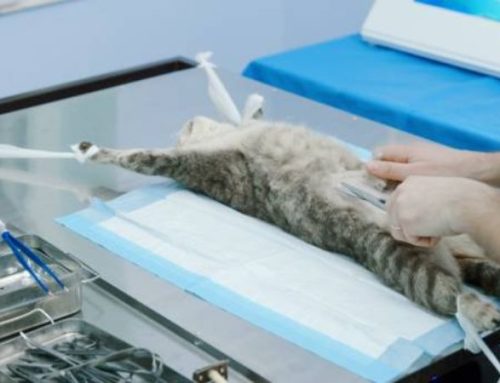When a female cat enters her heat cycle, her behavior can suddenly feel a little… dramatic. Nighttime meowing, constant rubbing, and restless pacing are all part of the package. While you wait for her spaying appointment, there are practical ways to keep her calm, entertained, and safe indoors. In this guide, Nexus-Pets will show you how to manage a cat in heat and reduce those late-night serenades.
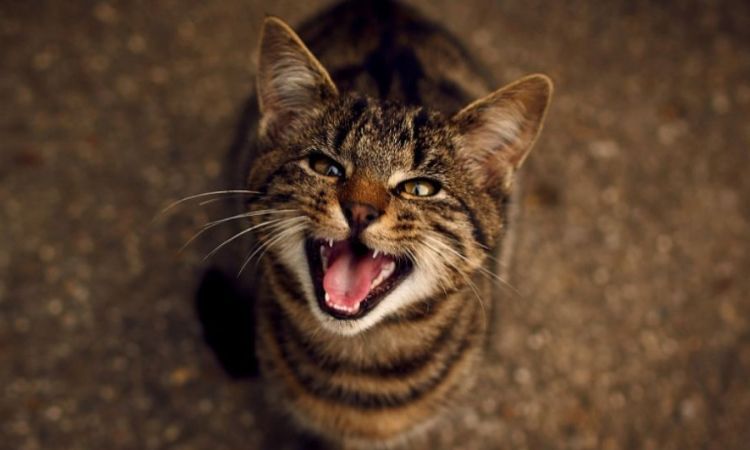
Why Cats in Heat Meow at Night
When a female cat is in heat, her nighttime yowling is often more than just a noisy nuisance—it’s a natural expression of biological and emotional needs.
- Biological Urges Related to Mating: Cats in estrus experience surges in reproductive hormones, which drive them to seek mates. Meowing and yowling at night are instinctive behaviors meant to attract potential partners, signaling their readiness to mate.
- Seeking Attention and Companionship: Beyond mating instincts, cats may meow to engage their human caregivers. During heat, they often crave extra attention, physical contact, and reassurance. Nighttime vocalizations can be their way of calling for companionship when the household is quiet.
Hormonal fluctuations can also make cats restless, anxious, or uncomfortable. Meowing at night may reflect these feelings, as well as a desire to release pent-up energy. Providing comfort, stimulation, and a secure environment can help reduce excessive nighttime vocalizations.
Immediate Strategies to Reduce Nighttime Meowing
1. Keep Your Cat Indoors and Secure the Home
Cats in heat or highly vocal cats are often driven by instinct to roam. Ensure all doors, windows, and screens are securely closed to prevent escapes. Consider using childproof locks or barriers for patios and balconies to further limit access to the outdoors. This not only keeps your cat safe but also reduces the stimuli that trigger nighttime meowing, such as the scent or sight of other animals outside.
2. Provide Interactive Play Before Bedtime
Engaging your cat in vigorous play sessions during the evening can help burn off excess energy and reduce restlessness. Use toys like feather wands, laser pointers, or puzzle feeders to provide both physical and mental stimulation. A well-exercised cat is more likely to settle down and sleep through the night.
3. Create a Calm and Comfortable Sleeping Area
Set up a cozy, quiet space for your cat to rest at night. Include a soft bed or blanket, and consider placing items that carry familiar scents, like your clothing, to provide reassurance. Adding warmth, such as a heated pad or blanket, can also help your cat feel secure and relaxed.
Synthetic feline pheromone products mimic the natural calming scents cats produce. Using sprays or diffusers in sleeping areas can help reduce anxiety and promote a sense of safety, making it easier for your cat to relax and sleep through the night.
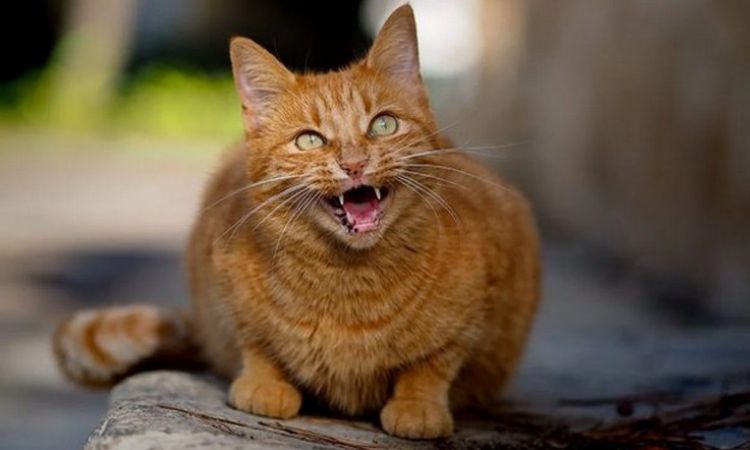
Long-Term Solutions for Managing Heat-Related Vocalization
Spaying Your Cat: The Most Effective and Permanent Solution
The most reliable way to stop heat-related meowing is to have your cat spayed. Spaying eliminates estrus cycles entirely, preventing the hormonal fluctuations that trigger vocalization, restlessness, and attempts to escape in search of a mate. By addressing the root cause, this procedure provides a permanent solution rather than temporary relief.
Benefits of Spaying on Behavior and Health
Beyond reducing vocalization, spaying offers significant health advantages. It lowers the risk of uterine infections, ovarian and uterine cancers, and mammary tumors. Behaviorally, spayed cats tend to be calmer, less restless, and less prone to marking territory with urine. Additionally, spaying contributes to controlling the feline population, reducing the number of unwanted kittens and helping prevent overpopulation in shelters.
Alternatives if Spaying is Not Immediately Possible
If spaying cannot be done right away due to age, health, or financial reasons, there are strategies to help manage your cat’s heat-related behavior:
- Environmental management: Keep your cat indoors, secure all exits, and block visual access to male cats outside.
- Interactive play and mental stimulation: Regular evening play sessions can help reduce restlessness and nighttime yowling.
- Comfort measures: Provide a cozy sleeping area, use pheromone sprays or diffusers, and maintain consistent routines.
- Monitoring and temporary medications: In some cases, veterinarians can recommend hormone-suppressing treatments to reduce the intensity of heat cycles temporarily.
By combining these long-term strategies, you can help your cat remain safe, comfortable, and calm during heat cycles until spaying is possible, while promoting her overall health and well-being.
Additional Tips for Comfort and Enrichment
Ensuring your cat is comfortable, mentally stimulated, and well-cared-for can greatly reduce nighttime meowing and stress. Consider these strategies:
1. Environmental Enrichment
Cats need stimulation to stay happy and healthy. Provide a variety of toys, scratching posts, climbing structures, and cozy resting spots. Window perches, cat trees, and hiding places allow your cat to explore, climb, and relax safely, keeping them engaged throughout the day and evening.
2. Consistent Daily Routine
Cats thrive on routine. Feeding, playtime, and attention should occur at roughly the same times each day. A predictable schedule helps reduce anxiety, prevents boredom, and signals to your cat when it’s time to be active versus rest. Pre-bedtime play sessions are especially effective at tiring out indoor cats, promoting calmness at night.
3. Access to Essentials
Before bedtime, ensure your cat has access to clean water, a full food bowl, and a clean litter box. Hunger, thirst, or discomfort from a dirty litter tray can trigger meowing during the night. Maintaining these essentials reduces potential stressors and helps your cat settle comfortably for sleep.
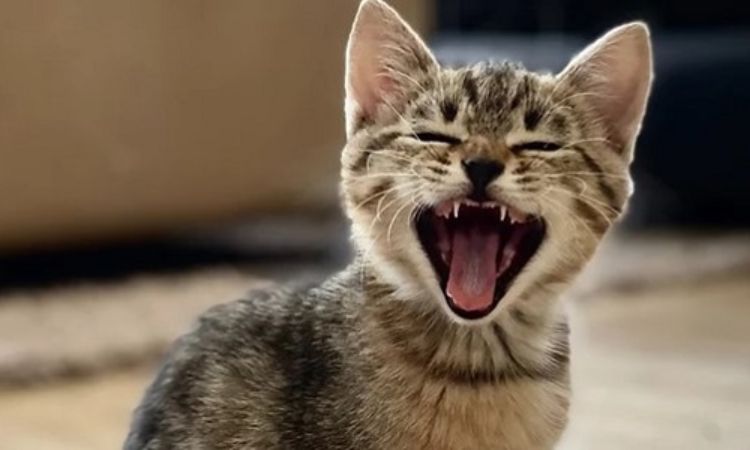
What Not to Do
When addressing nighttime meowing, it’s just as important to know what not to do. Certain actions can worsen your cat’s stress, anxiety, or behavioral issues.
- Avoid Yelling or Punishment: Raising your voice, hitting, or scolding your cat will not stop the meowing. Instead, it can increase fear, anxiety, and confusion, making the problem worse. Cats respond best to calm, consistent routines and gentle guidance rather than punishment.
- Do Not Simulate Mating Behaviors: Trying to mimic mating behaviors or interact with your cat in ways that trigger sexual responses is unsafe and ineffective. This can encourage inappropriate behaviors and increase stress for your pet.
Never use chemical, herbal, or physical remedies without veterinary guidance. Unsafe substances, sprays, or home remedies may harm your cat or create further anxiety. Always rely on vet-approved solutions like pheromone diffusers or behavioral interventions.
Articles you may be interested in:
It’s tough to deal with the constant meowing, but your cat isn’t doing it to annoy you—it’s a natural instinct. By staying patient and considering spaying, you can help her feel more comfortable and finally get a full night’s sleep yourself.





